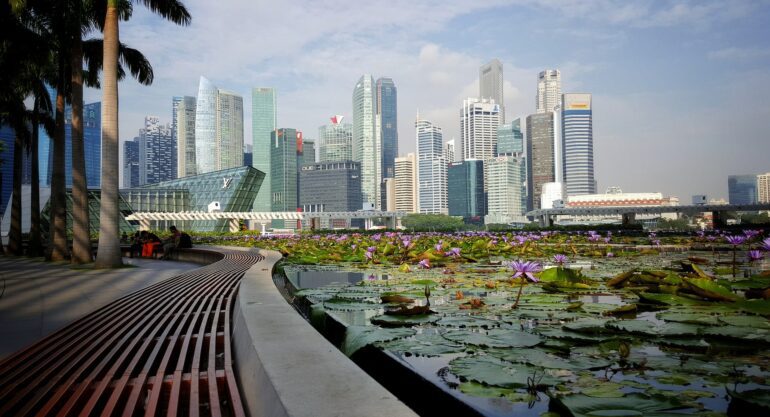TL;DR:
- Singapore aims to triple its AI experts, reaching 15,000 as part of its national AI strategy.
- The city-state, home to tech giants like Google and Microsoft, plans to boost high-performance computing resources through partnerships.
- Nvidia reported $2.7 billion in revenue from Singapore, highlighting its significance in the global tech landscape.
- The government is increasing incentives for AI, supporting startups, and encouraging AI “centers of excellence.”
- Singapore is also intensifying local AI training and ensuring a steady supply of GPUs for researchers.
- Infocomm Media Development Authority (IMDA) initiated a $52.3 million project for a large language model catering to Southeast Asia’s languages.
Main AI News:
In a strategic move aimed at solidifying its position as a global tech hub, Singapore has unveiled ambitious plans to significantly expand its artificial intelligence (AI) workforce. Deputy Prime Minister Lawrence Wong revealed that the city-state is set to triple its cadre of AI experts, encompassing machine-learning scientists and engineers, with the ultimate goal of reaching a substantial 15,000 professionals.
Singapore, with its population of 5.45 million, has emerged as a burgeoning tech haven, hosting Asian headquarters for industry giants such as Alphabet, the parent company of Google, and Microsoft. As part of its comprehensive national AI strategy, Singapore is not only focused on augmenting its human capital but is also actively pursuing partnerships with leading chipmakers and cloud service providers to bolster its high-performance computing resources.
Nvidia, a prominent player in the AI and semiconductor sector, disclosed in its quarterly report ending in October that it derived a substantial $2.7 billion in revenue from Singapore. This impressive figure underscores Singapore’s significance in the global tech landscape, with the nation standing behind only the United States, China, and Taiwan in contributing to Nvidia’s earnings, as reported to the U.S. Securities and Exchange Commission.
Furthermore, Singapore is committed to fostering an enabling environment for AI innovation. To this end, the government will enhance incentives for the AI sector, pledging support for accelerator programs geared towards AI startups and promoting the establishment of AI “centers of excellence” within companies.
In addition to recruiting foreign AI talent, Singapore intends to bolster its domestic AI training initiatives. The country’s authorities also plan to ensure a steady supply of graphics processing units (GPUs) for researchers, reinforcing their capabilities in AI research and development.
Highlighting its dedication to AI advancement, Singapore’s Infocomm Media Development Authority (IMDA) recently unveiled a substantial $52.3 million ($70 million SGD) initiative. This initiative aims to spearhead the development of Southeast Asia’s inaugural large language model, tailored to cater to the diverse languages spoken across the region.
Conclusion:
Singapore’s comprehensive strategy to triple its AI talent pool and expand its AI infrastructure signifies its strong commitment to becoming a global tech leader. This proactive approach is set to boost the city-state’s competitiveness in the tech market, making it an attractive destination for both talent and investment.

